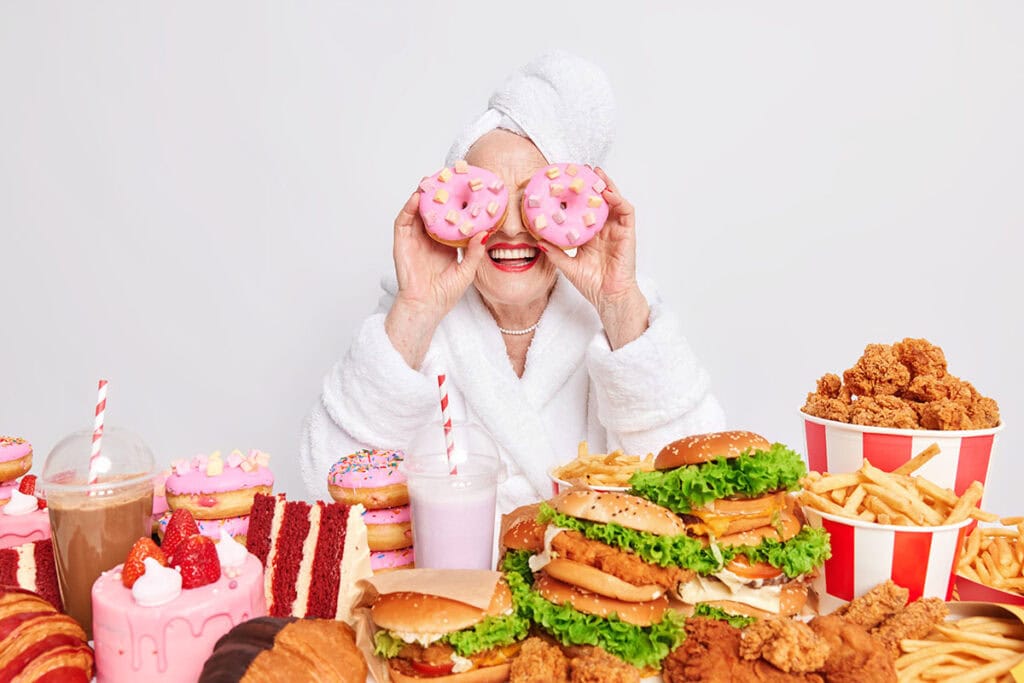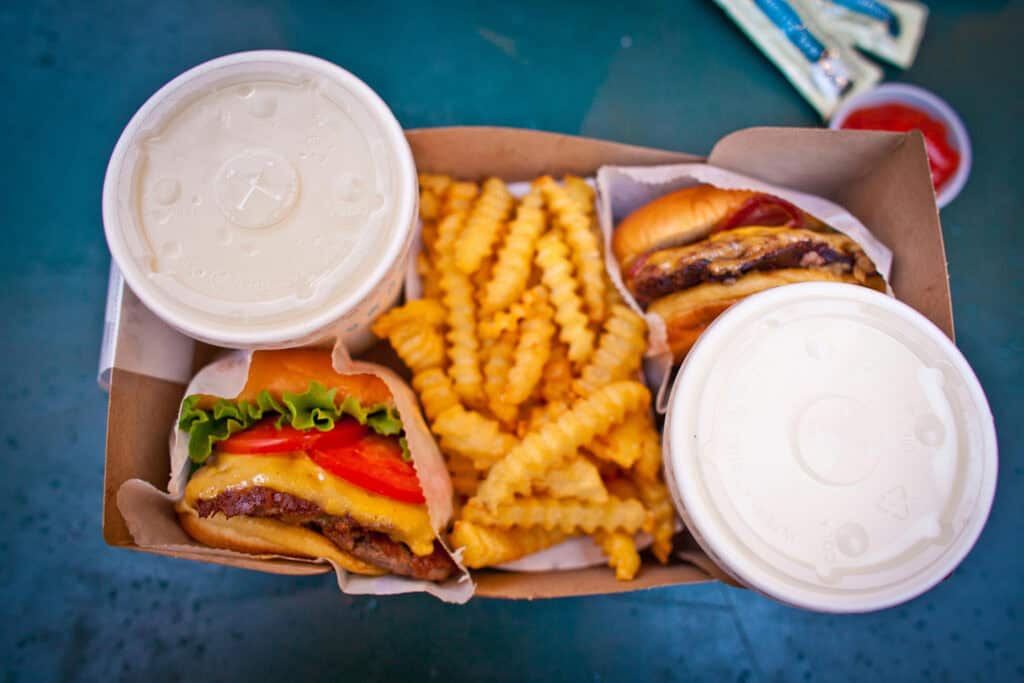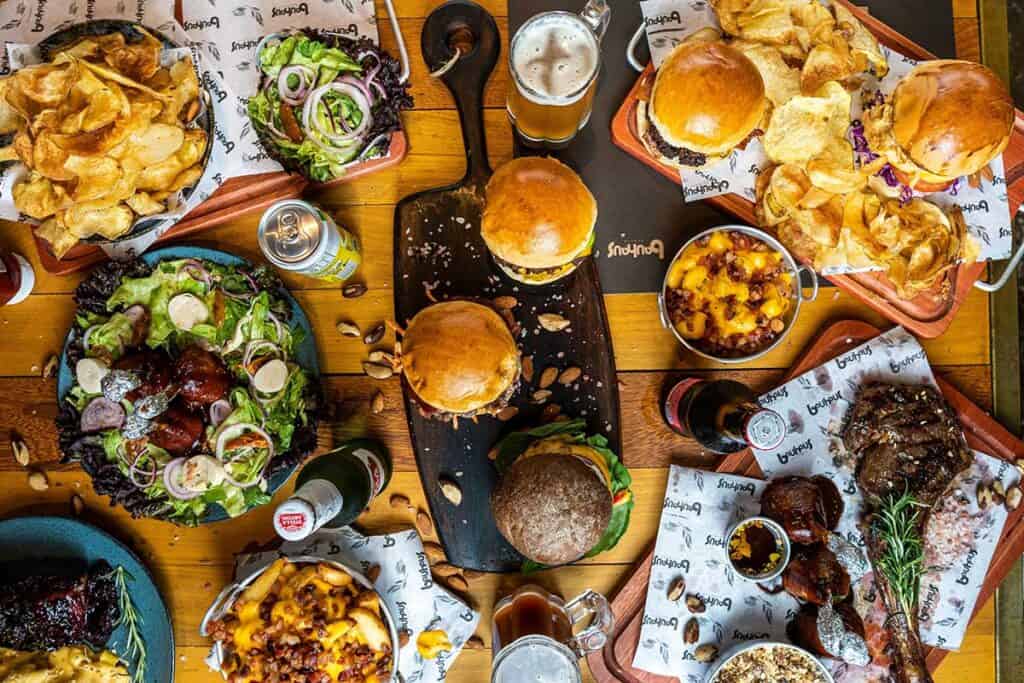Curious whether cheat days help or hurt your diet goals? You’re not alone—many people face burnout from rigid food rules. As the hero of your wellness journey, you deserve strategies that work with your lifestyle, not against it.
In this guide, we break down 12 essential information to help you decide if a cheat day fits your lifestyle
By the end, you’ll have a clear understanding of how cheat days work, when they can be beneficial, and how to avoid common pitfalls.
Keep reading to discover how the right cheat day strategy can help you stay committed, sane, and satisfied on your path to better health.
- 1. What Is a Cheat Day in a Diet Plan?
- 2. Why Do People Have a Cheat Day?
- 3. Will One Cheat Day Make Me Gain Weight?
- 4. How Often Should You Have a Cheat Day?
- 5. What Should You Eat on a Cheat Day?
- 6. What Are the Pros of Having a Cheat Day?
- 7. What Are the Cons of a Cheat Day?
- 8. Should You Have a Cheat Day on a Weight Loss Diet?
- 9. What’s the Difference Between a Cheat Day and a Cheat Meal?
- 10. How to Plan a Healthy Cheat Day
- 11. Can a Cheat Day Boost Your Metabolism?
- 12. What to Do After a Cheat Day
- What Is a Cheat Day on a Diet and Should You Have One? Final Thoughts

1. What Is a Cheat Day in a Diet Plan?
A cheat day refers to a planned break from your usual dietary restrictions, typically one day per week. On this day, you allow yourself to indulge in foods that are not part of your regular eating plan—whether it’s pizza, red meat, desserts, or high-carb meals.
Some people use a cheat day as part of their strategy to maintain long term weight loss and wellness. While it usually lasts an entire day, some prefer just one meal or cheat, which can be easier to manage. This flexible approach can prevent the development of bad habits or feelings of restriction that sometimes accompany a restrictive diet.
See also Weight Loss Vision Board
2. Why Do People Have a Cheat Day?

There are several reasons why someone may choose to incorporate a cheat day into their diet. These range from psychological benefits to potential metabolic advantages.
Benefits include:
- Mental relief: Reduces the feeling of deprivation and diet fatigue.
- Sustainability: Makes it easier to stick to an eating plan long-term.
- Increased adherence: People tend to have more success when they know a break is coming.
- Improved social life: You can enjoy special occasions without guilt.
Some people report better eating behaviors when they plan ahead for a cheat day, rather than breaking their diet impulsively. It may also help avoid emotional eating and the harmful habit of suppressing feelings through food restriction.
3. Will One Cheat Day Make Me Gain Weight?
One of the most common concerns is whether a cheat day can lead to actual weight gain. The short answer: No! not necessarily, especially if it’s done in moderation.
Here’s what happens:
- Water retention: Carb-heavy foods can cause temporary gain in body weight due to water retention.
- Caloric spike: Unless you eat thousands more calories, you’re unlikely to gain real fat in a single day.
- Bloating and digestion: A cheat day can affect gut health temporarily, especially if it includes saturated fat or processed foods.
Over time, consistent mindful eating and returning to your plan the next day will support stable body composition and better health.
4. How Often Should You Have a Cheat Day?

The frequency of your cheat day depends on your goals, discipline, and overall eating behaviors. While some people incorporate one weekly, others prefer a more occasional approach.
General guidelines:
- Weekly: For those on a restrictive diet who feel confident in returning to their routine.
- Monthly: Good for people who tend to overdo it or are still building better habits.
- Seldom or never: Best for those with a history of eating disorders or binge-eating tendencies.
Tip: A registered dietitian can help tailor a cheat strategy based on your health profile and goals.
5. What Should You Eat on a Cheat Day?

A cheat day should ideally involve foods you enjoy, but that doesn’t mean it has to be unhealthy. Making smart choices can prevent the cheat day from negatively impacting your health goals.
Options to consider:
- Dishes you miss, like pasta or red meat, if not usually allowed.
- Favorite restaurant meals like burgers or pasta.
- Desserts such as ice cream or cake (in moderation).
- Comfort foods like pizza, tacos, or wings.
- Larger portions or more calories than your typical meals.
Best practices:
- Stick to 2–3 indulgent meals rather than grazing all day.
- Eat slowly and mindfully
- Focus on quality over quantity.
- Avoid emotional eating or suppressing feelings through food.
Combining mindful eating with enjoyment can help you truly savor your meal without regret.
6. What Are the Pros of Having a Cheat Day?

There are several benefits to incorporating cheat days, especially for those on aggressive diets.
Advantages include:
- Psychological flexibility: Makes it easier to stay disciplined the rest of the week.
- Boost in leptin levels: Eating more can temporarily increase leptin, helping regulate hunger and metabolism.
- More success: People who plan their indulgences often see better results over time.
- Improved heart health: Avoiding constant restriction may reduce the risk of stress-related issues, benefiting your overall health.
- Improved diet adherence: You’re more likely to stay consistent the rest of the week.
- Reduced cravings: Knowing you have a day to indulge helps reduce the urge to cheat on regular days.
- Better social life: Makes it easier to participate in social activities without guilt.
- Psychological balance: Helps break the cycle of food obsession or rigid thinking.
When done correctly, cheat days can be a tool to build sustainable habits and encourage a balanced relationship with food.
See also The Best Foods to Eat After a Workout
7. What Are the Cons of a Cheat Day?

While cheat days can offer relief, they also come with potential drawbacks.
Risks include:
- Reinforcing bad habits: For some, cheat days trigger binge cycles or impulsive eating.
- Setbacks in progress: Eating far more calories than needed can undo your weekly deficit.
- Digestive discomfort: High-fat or processed foods can lead to bloating, especially if you’re used to clean eating.
- Impact on heart health: Diets high in saturated fat can raise cholesterol if cheat days aren’t managed carefully.
- Binge behavior: For some, one cheat meal can lead to days of overeating.
- Guilt and shame: Especially if you overindulge, it may lead to emotional eating.
- Slower progress: If not managed carefully, cheat days can offset your weekly calorie deficit.
People with a history of eating disorders or disordered eating behaviors should consult a registered dietitian before trying this strategy.
8. Should You Have a Cheat Day on a Weight Loss Diet?
Incorporating cheat days on a weight loss journey can work well if handled responsibly.
Who should consider cheat days:
- Individuals with strong willpower and clear goals.
- People looking for flexibility in an otherwise strict eating plan.
- Dieters who have hit a plateau and need a mental or metabolic reset.
Who may want to avoid them:
- Those prone to eating disorders or binge episodes.
- People with a poor relationship with food or emotional eating habits.
- Anyone following a restrictive diet without professional guidance.
In all cases, remember that cheat days are about balance—not permission to abandon your goals.
9. What’s the Difference Between a Cheat Day and a Cheat Meal?

Understanding the difference between a cheat day and a cheat meal helps you choose the best option for your needs.
- Cheat Meal: A single indulgent meal during a day of otherwise clean eating.
- Cheat Day: An entire day of relaxed rules.
Benefits of just one meal:
- Easier on digestion and calorie control.
- Reduces the risk of spiraling into bad habits.
- Still provides relief without major impact on body composition.
Many people start with cheat meals and gradually decide whether to move toward full days based on their experience and goals.
10. How to Plan a Healthy Cheat Day

A successful cheat day isn’t spontaneous—it’s strategic.
Here’s how to plan ahead:
- Set a limit: Decide what you’ll eat and how much.
- Stay active: Consider scheduling your cheat day after a hard workout to minimize fat storage.
- Hydrate: Drink plenty of water to help flush out excess sodium.
- Mind your portions: Even cheat meals can be portion-controlled.
- Get back on track: Return to your regular diet the very next day.
Also, balance higher-calorie meals with fewer calories earlier in the day or the following day to maintain energy balance.
11. Can a Cheat Day Boost Your Metabolism?

Some believe that cheat days help “reset” your metabolism by boosting leptin levels and increasing calorie burn. This idea comes from rigorous scientific research on starvation and hormone signaling.
What’s true:
- Leptin boost: Temporarily increases after a spike in calories, which may reduce hunger and improve energy.
- No miracle cure: The boost is modest and short-lived.
- Psychological edge: The real power of a cheat day lies in motivation, not metabolic changes.
The best results come from combining structured diet habits with occasional, mindful eating breaks.
12. What to Do After a Cheat Day
The day after your cheat day is crucial for returning to your routine.
Helpful steps:
- Don’t try to “fast” or skip meals the next day.
- Drink extra water to reduce bloating.
- Resume your regular exercise schedule.
- Use it as motivation—not a setback.
This reflection helps improve future eating behaviors and maintain momentum toward your goals.
See also What to Eat Before a Workout
What Is a Cheat Day on a Diet and Should You Have One? Final Thoughts
A cheat day can be a powerful tool if used correctly. It supports mental health, reduces stress, and can even improve your chances of long term weight loss when incorporated strategically.
It may be right for you if:
- You can indulge without guilt or overeating.
- You stick to your diet more consistently afterward.
- You enjoy food freedom while still pursuing your goals.
But if a cheat day feels like a setback instead of a reward, focus on balance, portion control, and mindful eating every day. When in doubt, consult a registered dietitian to tailor an approach that suits your lifestyle and supports your overall well-being.


